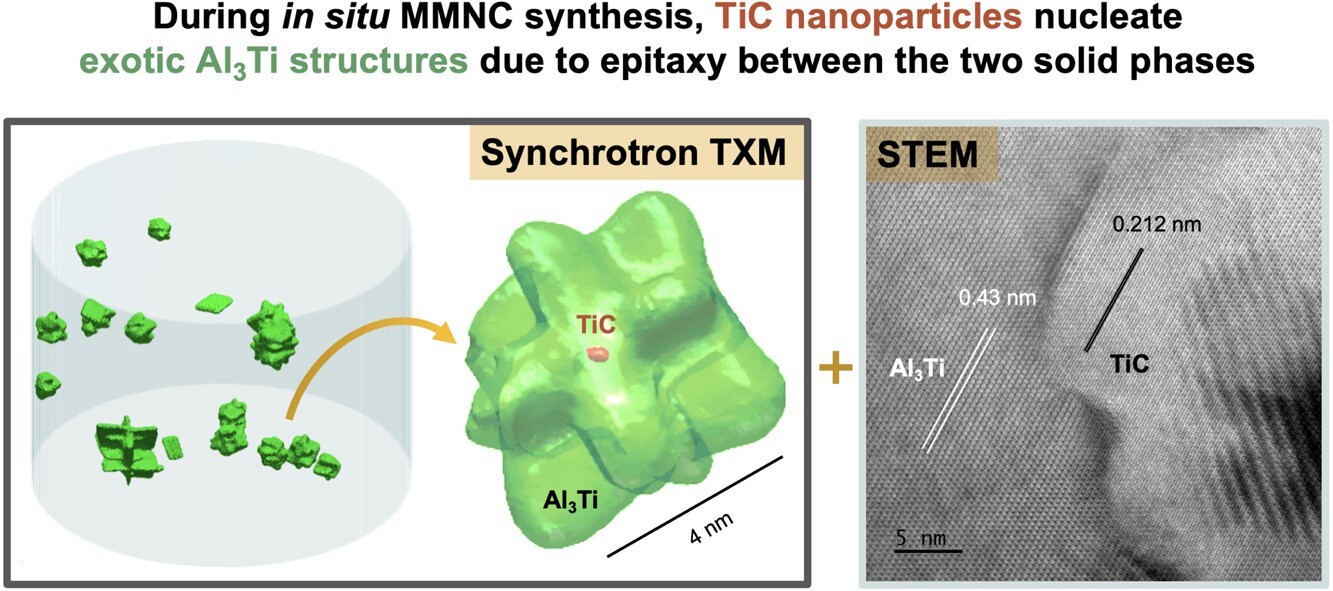

Researchers at the University of Michigan have made a significant breakthrough in developing an advanced aluminium alloy that could reshape automotive manufacturing, particularly for electric and fuel-efficient vehicles. By adding minuscule titanium carbide (TiC) particles directly into molten aluminium, they’ve created a metal matrix nanocomposite that addresses a long-standing challenge: aluminium’s instability at high temperatures. This new material is stronger and more heat-resistant, making it a viable alternative to heavier steel and a pathway to lighter, more efficient vehicles.

For years, engineers have aimed to replace steel in automotive structures with aluminium alloys due to their lightweight properties, which could boost fuel efficiency and extend the range of electric vehicles. However, the alloys’ inability to endure high temperatures has limited their widespread use. This novel approach by the University of Michigan researchers may offer a solution by reinforcing aluminium with TiC nanoparticles, resulting in an alloy that can withstand the demanding conditions found in manufacturing and operation.
Despite this nanocomposite's potential, one roadblock to industrial adoption has been understanding precisely how these nanoparticles form and integrate within the aluminium microstructure. Only now has this knowledge gap hindered the large-scale production of the material. The University of Michigan team has tackled this challenge using a specialised high-resolution 3D X-ray technique, which provides the first-ever detailed view of how nanoparticles form, where they situate within the alloy, and how they promote solidification during the cooling process.
Their findings represent a critical step toward the mass production of stronger, more durable aluminium alloys for the automotive industry. This advancement promises a more efficient manufacturing process and paves the way for lighter, high-performance vehicles with increased range and fuel efficiency—an exciting development in sustainable transportation.

The study's co-corresponding author, Ashwin Shahani, Associate Professor of Material Science and Engineering and Chemical Engineering at U-M, said, "Most metals start their lifetimes in the liquid state. How they convert from liquid to solid will ultimately determine their microstructures, properties, and applications."
"The study enabled us to understand exactly how the nanoparticles interact with secondary phases in casting, which has been a major challenge for the past half-century."
Because nanoparticles measure less than 100 nanometers or one ten-thousandth of a millimetre, researchers employed a high-powered imaging technique known as synchrotron-based X-ray nanotomography. This method enabled them to visualise the metal’s microstructure in 3D without causing damage—something conventional imaging methods can’t achieve.
The team developed an aluminium composite strengthened with titanium carbide (TiC) through a flux-assisted reaction to create these visualisations—this process combined carbon powder and titanium-bearing salt with molten aluminium.
The resulting 3D reconstructions revealed a surprising variety of titanium aluminide (Al3Ti) intermetallic structures. Some of these structures formed directly on TiC nanoparticles larger than 200 nanometers, where Al3Ti crystals developed into an unusual orthogonal plate configuration. In contrast, TiC nanoparticles smaller than 200 nanometers interrupted the Al3Ti plates during solidification, leading to branched formations.
Alongside imaging, the researchers employed phase-field simulations to bridge spatiotemporal gaps in the experiments and suggest a mechanism for microstructure formation.
Associate Professor Shahani said, "We now have evidence that the nanoparticles form well before the intermetallic, and not the other way around, which has important implications regarding the nucleation of the nanoparticles in the first place."
With these results, industry partners can now effectively guide the formation of TiC and Al3Ti during large-scale aluminium composite manufacturing, refining solidification pathways or alloy compositions to achieve the targeted microstructure and desired material properties.
Alan Taub, a Robert H. Lurie Professor of Engineering at U-M and director of the Electric Vehicle Center and co-corresponding author of the study, stated, "We have known for a long time that nano-sized particles could improve the performance of metal matrix composites, but the materials could not be produced at scale. We now understand the formation mechanisms that will enable our industry partners to optimize the process for lightweighting applications."
Note: This story was originally published on Phys.org.
Image source: ScienceDirect; Michigan Engineering News - University of Michigan
Responses








